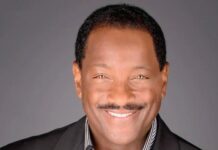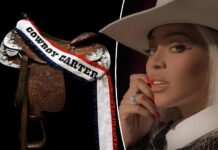*As complaints rage on about the misogyny in rap music – including lyrics that refer to women as bitches and hos – it seems these critics aren’t concerned with the perpetual man-bashing that’s perpetrated by R&B favorites like Erykah Badu, Keisha Cole, Mary J. Blige, Rihanna, Jhené Aiko, Beyonce, Jazmine Sullivan, and others.
Various female-led organizations have joined forces in a crusade to eliminate rap music from the airwaves.
They argue that rappers of today’s generation promulgate lyrics that demean and objectify women of color. Experts have also accused rap of having adverse effects on the self-esteem and confidence of young female listeners.
Although these findings have merit, I’d be remiss if I didn’t mention the long, LONG list of R&B divas (past and present) who’ve relished every opportunity to eviscerate black men under the guise of musicianship.
And if you think I’m exaggerating or trying to create a false narrative, then I challenge you to play an entire Keisha Cole album from start to finish. She and others of her kind dedicate whole songs to bashing former lovers and ex flames, while rappers only pepper their lyrics with vulgar one-liners about the skanks and skeezers they encounter on the road.
It could be argued that modern rap is conspicuously demeaning to women, while R&B music tends to be much less aggressive and profane. But these genres each give performers a stage to publicize their frustrations about the opposite sex.
And frankly, it doesn’t matter how an insult is packaged as long as it serves its purpose – to provoke emotion from its intended target(s).
OPRAH WINFREY SHARES WHAT SHE LEARNED FROM RECENT HEALTH SCARE
And if you’re wondering why there hasn’t been a rap song created to uplift women since Tupac released “Keep Your Head Up” in 1993, then my counter-question is why aren’t there more R&B songs from women created to celebrate black men (other than when Jill Scott or Angie Stone decides to write one).
So why aren’t the ladies being held to any standard of professional conduct or lyrical integrity?
I’m not saying rappers should be allowed to freely denigrate black women because of the equally critical overtones of man-hatred prevalent in R&B music from women artists, but if you ask me, it’s unfair and short-sighted for dozens of women’s rights organizations to point their fingers at rappers for using “offensive” language against women, while ignoring songs like “Scrubs” from TLC, in which men are ridiculed for lacking money, status, and a personal means of transportation.
WHITE KAPPA ALPHA PSI MEMBER SLAMMED AFTER PENNING ESSAY ON WOKENESS
If it’s okay in the interest of music for TLC to categorize lowly men as “scrubs” without the lyrics sparking outrage from the male population, then shouldn’t it also be acceptable for rappers to use words like “ho” and “bitch” to categorize gold-digging industry groupies?
When Mary J Blige, Beyonce, Rihanna and other singers embed sweeping – and often negative – generalizations about men into the lyrics of their hit songs, should they be subjected to the same level of criticism and judgment that rappers are often forced to grapple with?
Why isn’t there opposition to the R&B songs that depict black men as liars, cheats, deadbeats, and scumbags?
Why aren’t there boundaries established for black women in music who earn their living from maliciously bashing African American men in an effort to appease their broken and bitter female fans?
Meanwhile, there’s a never-ending chorus of naysayers constantly taking aim at rap music for its alleged history and culture of misogyny – as if women are exempt from being on the blunt end of free speech, and entitled to special treatment.
The notion that rappers should be required to censor their language to accommodate the sensibilities of women is not only comical on its head, but it reeks of new-wave feminism.
We’ve reached an epoch in our world’s history where it’s “courageous” and “bold” for women to openly badmouth men, but when the tides shift, so do the attitudes regarding free speech.
So here’s my solution. How about black men and women find things to fuss about other than each other? As the old saying goes, two wrongs don’t make a right.
Rap needs a makeover. R&B needs the same. Still, both genres have the power to radiate Black excellence.

The Black Hat is written by Southern California based Cory A. Haywood, a freelance writer and expert on Negro foolishness. Contact him via: [email protected] and/or visit his blog: www.enterthehat.com, or send him a message on Twitter: @coryahaywood
We Publish News 24/7. Don’t Miss A Story. Click HERE to SUBSCRIBE to Our Newsletter Now!







